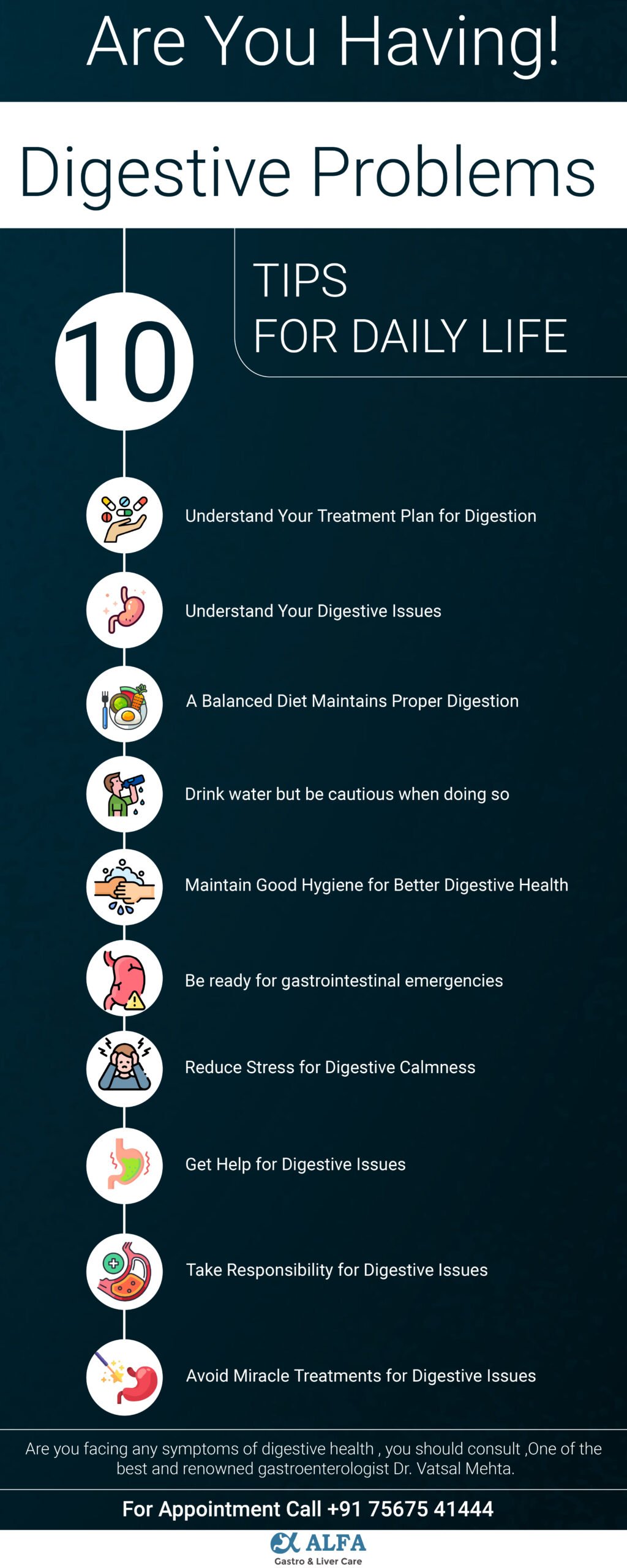Digestive Problems: 10 Tips for Daily Life

Diarrhea and associated digestive issues are unpleasant, particularly for those who have them frequently.
Such issues may be brought on by foodborne bacteria, infections, stress, particular drugs, or long-term illnesses, including colitis, Crohn’s disease, and IBS. Anyone who experiences frequent stomach issues, however, must deal with difficulties every day and potential humiliation.
Are your activities planned around bathroom breaks? Do you decline invites and steer clear of social gatherings because you worry about getting into trouble? Rest assured that you are not the only one if it describes you.
To resolve your digestive problems, your doctor may make dietary recommendations and/or prescribe medication. However, you can take actions that will make it easier for you to get through each day in-between visits. You’ll be able to handle daily life better if you follow these ten tips, which range from lowering stress to locating portable solutions for stomach problems.
 Top 10 Digestive tips for Daily Life:
Top 10 Digestive tips for Daily Life:
-
Understand Your Treatment Plan for Digestion
Your doctor will identify the causes of your digestive issues and recommend a treatment strategy. This can entail taking medicine, abstaining from specific meals, and forming some new routines. You might need some time to process everything that has been said. Try putting all your notes, together with any instructions and reference materials from your doctor, in a file folder or notepad. Regularly review the material and make a list of any questions you have for your physician.
-
Understand Your Digestive Issues
Digestion issues can be brought on by a variety of factors, and each person has different triggers. By posing the following inquiries to yourself, try to identify your personal triggers: Which foods, drinks, and eating habits seem to irritate your digestive system? For instance, coffee, dairy goods, and carbonated beverages could cause gas or diarrhea.
Which prescription and over-the-counter drugs aggravate your digestive issues? Which drugs are helpful? Keep track of the effects you notice from taking medications and be sure to talk to your doctor about them.
Do specific settings and events appear to set off your digestive problems? Do you become erratic when you travel? Do menstruation hormones mess with your digestive system? Plan so you can foresee, prevent, or at the very least be ready for such challenging situations if you detect a connection.
Keep a log of your daily activities, including what you eat and drink, the medications and supplements you take, and daily occurrences to aid in making these connections. You might eventually notice a connection between one or more of these elements and instances of digestive issues.
-
A Balanced Diet Maintains Proper Digestion
Eating well can help avoid digestive disorders or ease your system when difficulties flare up. Pay attention to your doctor’s advice regarding what to eat and what to avoid. Pay attention to your eating habits, including frequency and speed.
-
Drink water but be cautious when doing so.
Water is necessary for healthy living and regular bowel movements. Additionally, water maintains soft yet sturdy and well-formed stools. If you believe that certain drinks, like coffee or soda, make your digestive issues worse, stay away from them.
It’s crucial to drink lots of water when diarrhea strikes to prevent dehydration. The best options are water and sports drinks, which replenish lost nutrients called electrolytes. Alcohol and caffeine both make dehydration worse.
When it’s hot outside and whenever you’re engaging in strenuous activity, drink more water. Dehydration, a potentially deadly imbalance in which your body loses more water than it takes in, can be avoided by drinking water.
Avoid potentially contaminated water and anything that may have meet water to prevent travelers’ diarrhea. When you’re driving, drink bottled water, juice, or sports drinks. Keep in mind that contaminated water might be used to wash fresh fruit and vegetables, produce ice and popsicles, brew coffee or tea, and make coffee.
-
Maintain Good Hygiene for Better Digestive Health
After using the restroom, immediately wash your hands with soap and warm water before using them to prepare food or eat. It lessens the chance of possibly harmful microorganisms getting onto your meal.
Try cleaning the anal area with pre-moistened, alcohol-free towelettes rather than harsh soap if your diarrhea is making you uncomfortable or itchy. Wear cotton underwear and loose, breathable clothing to keep the skin dry.
-
Be ready for gastrointestinal emergencies
Despite your best efforts, accidents can still occur. Keep emergency supplies on hand at home, at work or school, and while traveling. For many items, discrete, transportable packaging is available. Listed below are a few goods to try:
- Rapid-acting drugs (for gas, bloating, or diarrhea)
- Pre-moistened travel wipes
- The second set of undergarments
- Underwear or disposable pads for incontinence
- Plastic bags for dirty wipes and clothes disposal
Put these items away in your desk at work, car, suitcase, and pocketbook, and then relax. Consult your doctor if accidents or fecal incontinence recur.
-
Reduce Stress for Digestive Calmness
Do your stomach issues seem to be brought on by or made worse by stress? (Experiencing digestive flare-ups can be in and of itself stressful.) Relaxing activities like exercise, yoga, meditation, or a beloved hobby may help you reduce stress.
Be practical and adaptable as you customize stress-reduction techniques to your own circumstances. For instance, going to a yoga session on a day when your digestive issues are bad may make you feel uneasy. In that situation, exercise in private at home while watching a DVD.
Stress cannot always be prevented. Asking a friend or therapist for assistance might help you learn coping mechanisms for difficult circumstances and relationships.
-
Get Help for Digestive Issues
Avoid attempting to conceal your stomach issues from loved ones, close friends, and caretakers. Help them comprehend your digestive issues and how, when, and why you experience them. Tell them how they can help you both emotionally and practically. Tell them about your self-care strategy. Tell them that while you are with them, problems like diarrhea or gas pains could occur without warning.
Connecting with other people who experience the same digestive issues might be helpful at times. A support group, whether physical or online, can help you feel less alone and give you a place to share ideas and support one another. Inquire about a group that might be a good fit for you from your doctor or the neighborhood hospital.
-
Take Responsibility for Digestive Issues
Join forces with your doctor by giving thorough feedback and posing inquiries regarding your condition and course of treatment. Speak out if the medication your doctor recommended is ineffective or has unacceptably unpleasant side effects. You might want to try some different drugs. Ask your doctor or pharmacist about potential side effects and drug interactions before attempting over-the-counter medicines or supplements. Keep a record of your experiences and inquiries so you can talk with your doctor about them.
-
Avoid Miracle Treatments for Digestive Issues
Some articles and advertisements heavily promote alternative digestive therapies, including fasting and colon cleaning. Alternative therapies have some promise, but many are prohibitively expensive, ineffective, or even harmful. Before attempting any alternative therapy or supplement, always check with your doctor.
Final Words
If are you facing any symptoms of diarrhea, you should consult one of the best gastroenterologists Dr. Vatsal Mehta is there to help you to overcome every cause of diarrhea. Book an Appointment!
